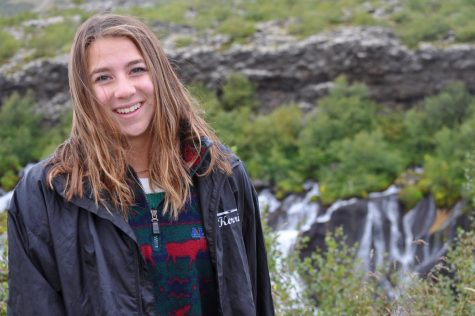Coronavirus concern: what to know about COVID-19

Individuals in Japan travel wearing masks to prevent the spread of illness. Photo sourced from Creative Commons.
March 13, 2020
School closures, toilet paper scarcities, and event cancellations pepper the air as worries about the novel coronavirus increase. After the first two cases were confirmed in Virginia Beach, many have questions about what this new virus is, how it is going to impact them, and what they can do to prevent it.
The term “coronavirus” actually refers to a more general group of viruses, rather than one in particular. This term includes many variations, ranging from common colds to serious diseases such as SARS and MERS. They are zoonotic, meaning they are transmitted from animals to people.
According to MIT Medical, COVID-19 originated in bats and was passed to humans in a seafood and live animal market in Wuhan, China.
This virus is particularly dangerous due to its exponential spread rate and its risk factors for older adults – not for its symptoms. As a respiratory virus, COVID-19 causes high fever, cough, sore throat, and trouble breathing in severe cases.
While some scoff at the symptoms as little more than a bad case of the flu, they may forget to note the dangerous impacts it has for at-risk populations. The elderly and those with current underlying medical conditions face a much higher fatality rate than younger, healthier individuals. In Italy, for example, the average age of those who have passed away from COVID-19 was 81, which is 20 years older than the average age of those who have tested positive.
Additionally, the exponential spread of the disease is able to quickly overwhelm communities, causing a lack of the necessary medical care. A positive feedback loop can form as areas lack adequate resources to prevent an outbreak, and then the outbreak causes a further shortage of supplies. To prevent this, cities are exercising preventative closures of schools and facilities.
As COVID-19 reaches Virginia with its first confirmed cases, 30 tested “presumptive positive,” according to WHSV ABC online news, VBCPS issued forewarnings to students and teachers to prepare for virtual learning should school close.
On Fri., March 13, Gov. Ralph Northam ordered all schools to shut down for the next two weeks, March 16-27.
According to the Virginian-Pilot, “he didn’t make the decision lightly, but the state must do everything we can to keep people healthy,” said local reporter Sara Gregory.
To avoid getting sick, the best strategy is frequent, thorough handwashing with soap and warm water. Alcohol-based hand sanitizer can work in a pinch but should not be solely relied upon. Individuals should also pay mind to cover any cough or sneeze, avoid touching the face, and stay home if they believe they are sick.
While closures and cancellations are frustrating at best, they serve as preventative measures that could stop COVID-19 from devastating our area. This pandemic is a national health crisis that requires total participation from citizens.
“I recognize this will pose a hardship on many families, but closing our schools for two weeks will not only give our staff time to clean and disinfect school facilities, but it will also help slow the spread of the virus,” said Northam.

